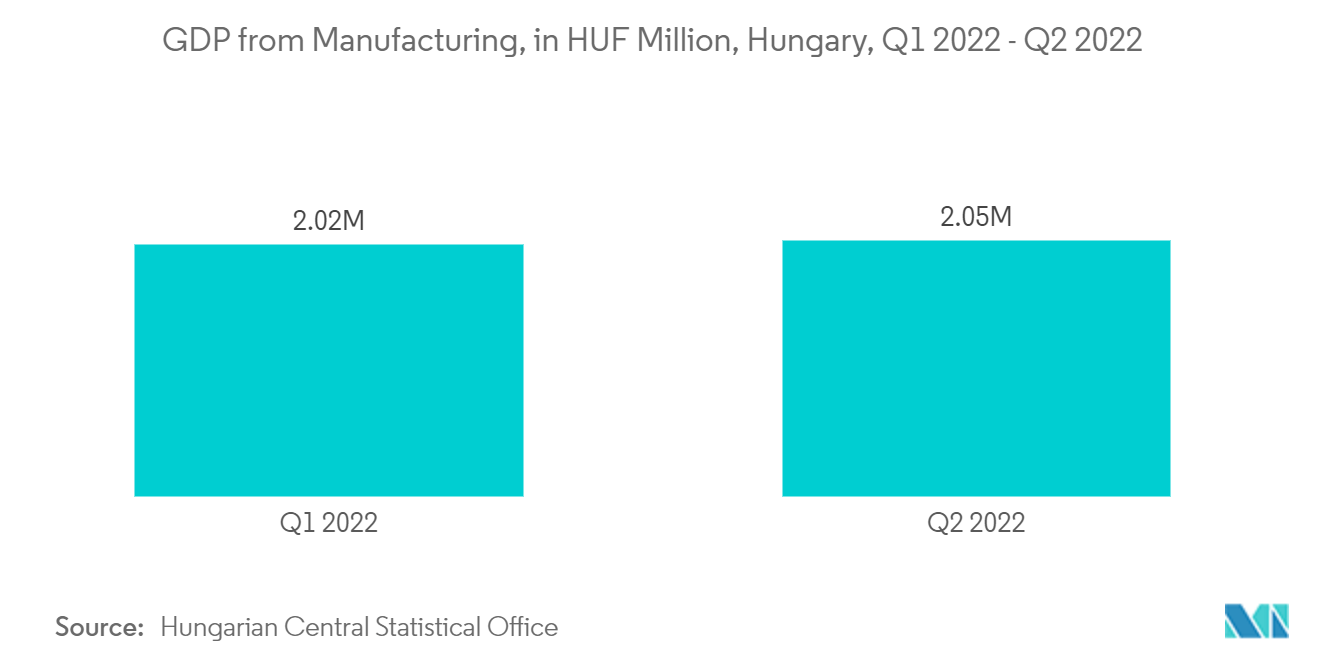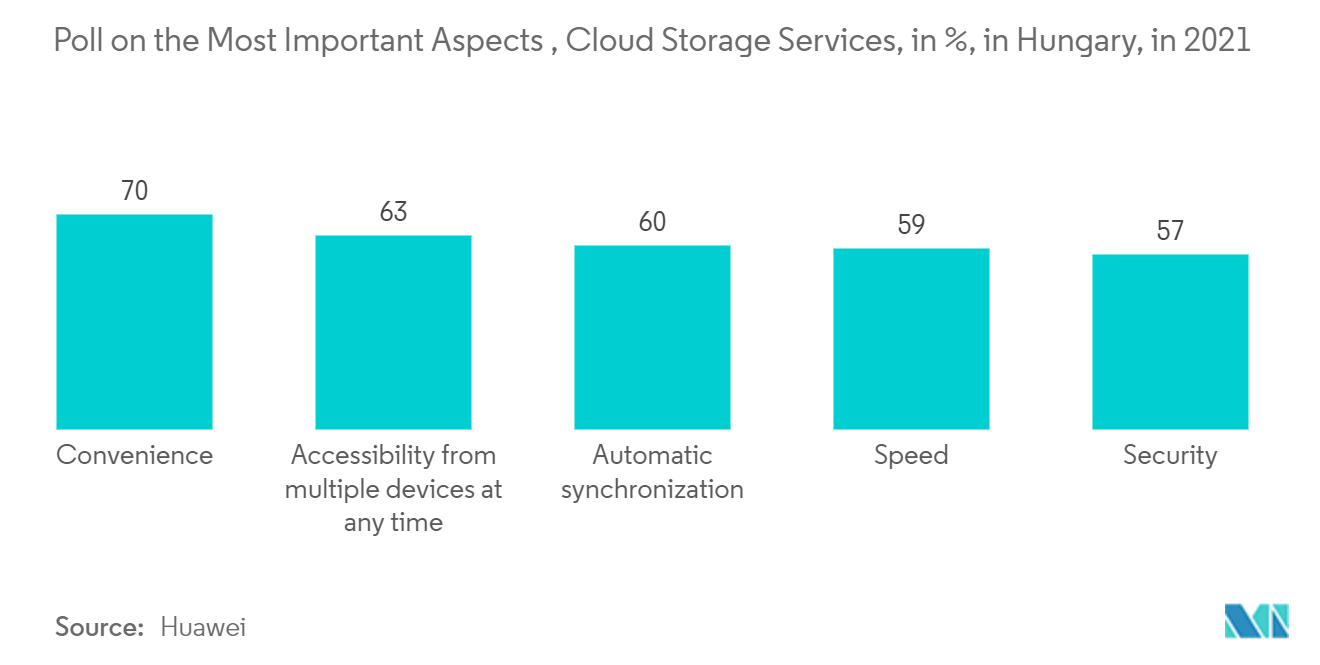Market Trends of Hungary Cybersecurity Industry
This section covers the major market trends shaping the Hungary Cybersecurity Market according to our research experts:
Manufacturing Sector Expected to Adopt to Cybersecurity
- With the introduction of Industry 4.0, the manufacturing industry has grown more open to cyberattacks as it moves closer to a digital transformation. As a result, businesses must realign their security systems for the industry. To improve overall operational efficiency and lower production costs, every manufacturing industry sector, including automotive, logistics, the many engineering disciplines, power systems, consumer goods, and chemicals, have embraced digital technologies. Due to the sectors' efforts to collect data and use it for analytics to prevent downtime and keep the industrial sector functioning 24 hours a day, M2M communication and networking have increased.
- As a result of their need for connection, several businesses may be vulnerable to cyberattacks. The industry value chain depends on intricate, frequently interrelated digital assets and ongoing data exchange to efficiently complete any task. Cyberattacks actively target the industry. Although compared to other highly targeted industries like healthcare and banking, cyber defensive solutions are less developed.
- An upsurge in cyber-related events linked to the control systems used to oversee industrial processes is being observed by several manufacturing companies. PLCs, embedded systems, distributed control systems, and industrial IoT devices could all be included in these systems. These control systems make up the operational technologies (OT) that enable facilities to function as a whole. While enhanced productivity, quicker detection and correction of quality issues, and improved cross-functional collaboration are all benefits of connection, they can also increase the smart factory's potential risks.
- As smart factory initiatives continue to increase across manufacturers' global footprint, cyber risks are expected to grow. The cyber preparedness of many manufacturers is less mature than likely necessary to protect against current threats and new threats and vulnerabilities that digital technologies create. Moreover, according to Hungarian Central Statistical Office, Hungary's GDP from manufacturing climbed from HUF 2016417 million in the first quarter of 2022 to HUF 2047185 million in the second quarter.
- Manufacturing enterprises should invest in a holistic cyber management program that extends across the enterprise (IT and OT) to identify, protect, respond to, and recover from cyberattacks. Organizations should consider these steps when building an effective manufacturing cybersecurity program: perform a cybersecurity maturity assessment, establish a formal cybersecurity governance program that considers OT, prioritize actions based on risk profiles, and build security.

Cloud Deployment Factors Expected to Drive the Market
- The adoption of on-demand security services in the region is being driven by the growing recognition among businesses of the significance of saving money and resources by transferring their data to the cloud rather than creating and maintaining new data storage. Cloud platforms and ecosystems are expected to accelerate the pace and scope of digital innovation over the next several years due to a number of advantages.
- Further, in November 2021, A comprehensive range of AWS's products and services were being distributed by Ingram Micro Cloud via its reseller network in Hungary and Poland, as the company stated. The action strengthens the global offering of Ingram Micro's Cloud Marketplace, one of the most complete and widely used collections of cloud products in the world.
- As IT service has shifted from being provided on-premise to being provided outside of a company's borders, security has been a crucial factor at every stage of the cloud adoption cycle. SMEs prefer cloud deployment because it frees them up to concentrate on their core skills rather than investing their limited cybersecurity funds in security infrastructure.
- Security is a crucial component of cloud architecture since the use of public cloud services expands the organization's trust boundary outside of it. However, the widespread use of cloud-based solutions has made it easier for businesses to embrace cybersecurity procedures. As cloud services like Google Drive, Dropbox, and Microsoft Azure become more widely used and become an essential component of corporate operations, organizations must cope with security risks, including losing control over sensitive data. As a result, on-demand cybersecurity solutions are being more frequently implemented.
- Additionally, as cloud-based email security services become more popular, so are services that are integrated with other security platforms like IPS and NGFW. This tendency is discouraging businesses from investing in specialized, on-premise email or online security solutions.


